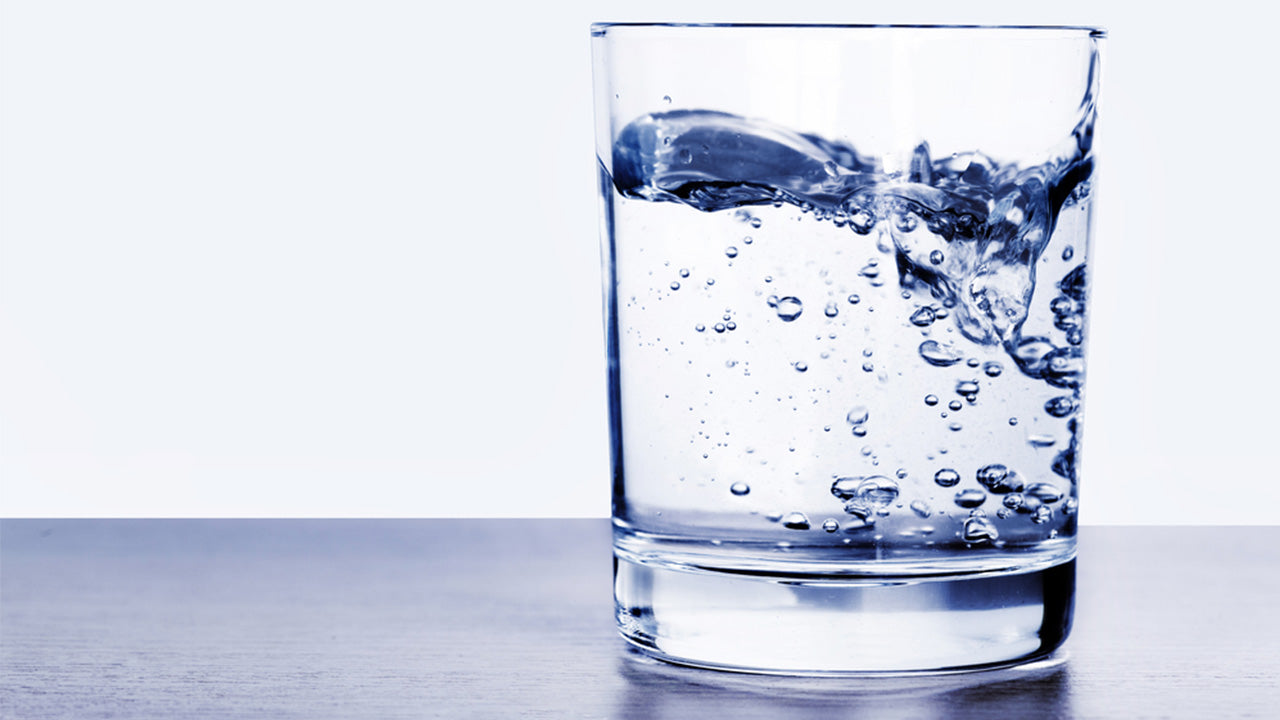What Is Carnitine and Why Is It Important?
 By: by Amino Science
By: by Amino Science

Carnitine is a specialized amino acid with a variety of duties in the body. It can be found in nearly all the cells of the human body, but unlike many of the other amino acids, carnitine is not found in the protein molecules that form sub-components of the cells.
The name "carnitine" comes from the Latin word "carnus," which means flesh. Researchers felt this name was fitting as the compound was first isolated from meat. The term carnitine can be used to refer to a number of compounds including L-carnitine, acetyl-L-carnitine, and propionyl-L-carnitine.
The main role of carnitine is to help the body break down fatty acids for energy. Carnitine also transports toxins out of the mitochondria—the cellular powerhouses that produce energy. Because it's responsible for such vital functions, the highest concentrations of carnitine can be found in your cardiac and skeletal muscle tissues.
How Carnitine Helps the Body Produce Energy
In order to understand the absolutely vital role carnitine plays in your body's production of energy, you must first have a basic grasp of the mechanics of a process called fatty acid oxidation.
We're most familiar with the ways that adipose tissue (what we commonly call fat) insulates and cushions the body; however, its primary purpose is actually to provide energy. Fatty acids are stored in adipose tissue as triglycerides, which are three fatty acids hooked together by a glycerol molecule.
Triglycerides are the principal form of stored energy in the body, but they cannot be directly used for energy. In order to be used to fuel physical movement, cognition, and other bodily functions, they have to be broken down into three component fatty acids, called free fatty acids. These free fatty acids are then released into the bloodstream to circulate throughout the body as readily available sources of energy.
When energy is needed in a particular tissue, such as muscle, free fatty acids are taken up and oxidized. In other words, they're broken down. The result of this fatty acid oxidation process is that a compound called adenosine diphosphate (or ADP) is converted to adenosine triphosphate (or ATP). You may be familiar with the acronym ATP, as this is the primary chemical form used for the energy needed for cellular processes, including the contraction of muscle proteins to perform exercise and the production of new proteins.
Where Fatty Acid Oxidation Happens
The main “power plants” of your cells are small organelles called mitochondria. There are a number of chemicals inside the mitochondria that function in an organized way to convert fatty acids and carbohydrates (in the form of glucose) to CO2. Regardless of the specifics of mitochondrial functions, the product of those functions will always be the conversion of ADP to ATP.
A quick sidebar: If you're wondering why we refer to this energy production process as the oxidation of fatty acids and glucose, that's a nod to the significant contributions oxygen makes to the process. And the entire step-wise series of reactions that oxidize fatty acids and glucose can be called either the Krebs cycle (after its discoverer, Hans Krebs) or the tricarboxylic acid cycle (TCA) cycle.
Potential energy in the form of ATP can be produced by the oxidation of either glucose or fatty acids through the TCA cycle in the mitochondria. The mitochondria have a membrane around them, and to be oxidized, the glucose or fatty acids have to get through the membrane into the mitochondria.
Glucose can diffuse directly into the mitochondria, so the oxidation of glucose is limited only by the biochemical reactions inside the mitochondria. Fatty acids, on the other hand, have it a bit tougher. This is where carnitine comes into play,
Fatty acids cannot freely diffuse into the mitochondria, so they must hook up with carnitine in order to be transported into the mitochondria via a specialized biochemical process. Getting into the mitochondria can prove to be quite tricky, but once inside, fatty acids can be oxidized very readily.
Fatty acids also have to compete with glucose for transport into the mitochondria. High glucose availability limits the ability of fatty acids to get inside the mitochondria, so fatty acid oxidation goes down and the mitochondria predominantly oxidize glucose for energy.
Similarly, low carnitine levels mean there's not enough of this essential amino acid derivative to bind with fatty acids, and the transport of fatty acids into the mitochondria decreases. As a result, fatty acid oxidation drops.
Your body preferentially selects fatty acids as a source of energy. One reason for this is that fatty acid oxidation is the most efficient way to convert ADP to ATP, the direct source of energy used throughout the body.
This works to your overall benefit, as fatty acid oxidation prevents these molecules from accumulating in your tissues, including your muscles.
Carnitine’s Vital Role in Energy Production
If your body's carnitine content is not sufficient to allow for the transport of fatty acids into the mitochondria, fat can build up in your muscle tissues. This causes a host of metabolic problems, including insulin resistance.
Carnitine levels often function as the rate-limiting factor in the transport of fatty acids into the mitochondria and subsequent oxidation. Rate-limiting means that everything else can be in place for fatty acids to be oxidized, but if your blood levels of carnitine are too low, that process will not take place.
So as you now understand, carnitine does indeed play a key role in energy production and metabolic health.

6 Benefits of Supplementing with Carnitine
Carnitine is produced in the body from the essential amino acids lysine and methionine. Carnitine is also found in animal proteins, most notably, in red meat such as beef. Consequently, your diet makes a considerable difference when it comes to your carnitine levels.
Not only do vegetarian diets supply significantly less carnitine, but many vegetables tend to be low in lysine. That means that not only do the foods you eat have lower carnitine contents, but they're also less likely to provide one of the amino acids that your body needs to produce carnitine. Consequently, vegetarians are more likely to have low levels of carnitine. If you adhere to a plant-based diet, it's quite possible you'll see greater benefits from carnitine supplementation than omnivores will.
Regardless of your dietary habits, studies show that taking dietary supplements containing carnitine can have several beneficial effects.
In fact, the U.S. Food and Drug Administration (FDA) has approved the use of L-carnitine as a complementary treatment for individuals with serious kidney disease who are undergoing hemodialysis, albeit, delivered intravenously. Studies have shown, however, that taking L-carnitine both orally as well as intravenously can both prevent and treat low levels of L-carnitine and associated symptoms such as anemia and inflammation.
1. Improve the Health of Your Heart
The effects of L-carnitine on heart health have been the subject of numerous studies. The principal benefit of carnitine supplementation is the enhanced oxidation of fatty acids in the mitochondria. This action has drawn particular attention because it has the potential to prevent cardiovascular disease.
A systematic review published in Life Science in 2018 noted that the demonstrated cardioprotective effects of L-carnitine include reducing oxidative stress, inflammation, and death of heart muscle cells. Additional research has also demonstrated that professional carnitine administration can be used to lower clinically high blood pressure levels, treat congestive heart failure, manage cardiac ischemia (the restriction of blood flow to the heart), and peripheral arterial diseases, a condition characterized primarily by poor circulation in the legs (known as intermittent claudication). In addition, carnitine can help the heart muscle contract efficiently by regulating the movement of calcium across the cell membranes.
2. Enhance Your Athletic Performance
A variety of additional benefits of carnitine supplements have been reported for exercise performance. Since fatty acid oxidation is the main source of energy for endurance exercise, carnitine can help improve performance in endurance sports. This benefit may not only be helpful for endurance athletes, but also for the elderly. In a study of 66 centenarians, carnitine supplementation reduced total fat mass, increased muscular mass, and increased capacity for physical and cognitive activity.
3. Facilitate Healthy Weight Loss
Increased fatty acid oxidation would seem to be a great way to lose weight, but carnitine supplementation alone will not have much effect in this regard unless you also reduce the calories you eat in a day. But that presents somewhat of a Catch 22. When caloric intake is decreased, carnitine intake is also reduced, so the ability to oxidize fatty acids may be impaired as a result of low L-carnitine levels. In this circumstance, carnitine supplementation can offset any carnitine depletion from diet. A 2016 meta-analysis showed that a low-calorie diet combined with carnitine supplementation promotes the oxidation of fat, spares muscle mass, and may also speed the rate of weight loss.
4. Recover Faster from Vigorous Exercise
Strenuous exercise causes oxidative stress and muscle damage. This requires time for recovery before the next training bout. A 2014 study showed how 2 weeks of L-carnitine supplementation alleviated the oxidative stress and inflammation associated with strenuous exercise, presumably by stimulating the more complete oxidation of fatty acids.
5. Decrease Resistance to Insulin
Insulin sensitivity is impaired by an inability to oxidized fatty acids. It has been reported that supplemental carnitine can improve insulin sensitivity and increase the uptake of glucose from the blood for patients with type 2 diabetes.
6. Sharpen the Brain and Protect Against Alzheimer’s
Finally, there are studies that suggest supplementing with acetyl-L-carnitine, another form of carnitine, may improve mental capacity and retard the development of Alzheimer’s disease. More extensive studies are required before conclusive statements can be made about the benefits of carnitine on mental function.
It may seem impossible that one amino acid could affect so many bodily functions. But then consider that almost every function in the body requires energy, and that fatty acid oxidation is the predominant and most effective source of potential energy in the body. Most of the benefits of carnitine can be traced back to its role in the efficient oxidation of fatty acids.
How Carnitine Deficiencies Develop
So far, experts have identified two types of carnitine deficiencies: primary carnitine deficiency and secondary carnitine deficiency.
The first is a genetic disorder involving mutations to the cellular-transporter system. Symptoms of this type of carnitine deficiency, which include cardiomyopathy, skeletal-muscle weakness, and hypoglycemia, typically present by 5 years of age.
Secondary carnitine deficiency can develop at any point during a person's life. It might arise due to a specific health condition, like chronic, late-stage kidney disease, or because of certain factors that impact carnitine metabolism, like the use of some types of antibiotics.
Scientists universally agree that supplemental carnitine should be prescribed to treat both primary and secondary carnitine deficiencies.
The Best Way to Increase Your Carnitine Levels
Since the body can produce carnitine from lysine and methionine, which must be obtained through the diet, and there are some direct dietary sources of carnitine, the effectiveness of carnitine supplementation will depend on how much lysine, methionine, and carnitine are consumed through your normal diet. Vegetarians are particularly at risk for a carnitine deficiency.
Dosage
Effective results have been reported with daily doses ranging from 0.5-2 grams a day. In addition, carnitine metabolism and production in the body may be enhanced with supplemental lysine and methionine. Lysine supplementation in particular is likely to be effective, since it is usually limited in vegetable sources of protein.
Potential Side Effects
When taken in doses of 0.5-2 grams a day there may be minimal side effects. Those who take high doses of carnitine may experience some unpleasant reactions, including stomach pain, nausea, vomiting, and diarrhea. If carnitine supplementation is coupled with supplemental intake of lysine (and to a lesser degree, methionine), a smaller dose of carnitine can be taken, which should forestall any side effects. Although it is possible to take individual supplements of lysine and methionine, it is preferable to consume them as part of a balanced formulation of essential amino acids so that the normal balance of all amino acids in the blood is maintained.

Up to 25% off Amino
Shop NowTAGS: supplements
Join the Community
Comments (0)
Most Craveable Recipes




 833-264-6620
833-264-6620



















